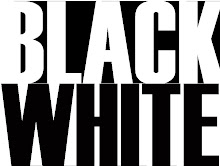Racism, by its simplest definition is the belief that race is the primary determinant of human traits and capacities and that racial difference produce an inherent superiority of a particular race. People with racist beliefs may resent certain groups of people according to their race. In the case of institutional racism, certain racial groups may be denied rights or benefits, or get preferential treatment. Racial discrimination typically points out taxonomic differences between different groups of people, even though anybody can be racialised, independently of their somatic differences.
Declarations against racial discrimination
Racial discrimination contradicts the 1776 United States Declaration of Independence, the 1789 Declaration of the Rights of Man and of the Citizen issued during the French Revolution and the 1948 Universal Declaration of Human Rights, signed after World War II, which all postulate equality between all human beings.
In 1950, UNESCO suggested in The Race Question to "drop the term race altogether and instead speak of ethnic groups". The statement condemned scientific racism theories which had played a role in the Holocaust. It aimed both at debunking scientific racist theories, by popularizing modern knowledge concerning "the race question," and morally condemned racism as contrary to the philosophy of the Enlightenment and its assumption of equal rights for all. Along with Myrdal's An American Dilemma: The Negro Problem and Modern Democracy (1944), The Race Question influenced the 1954 U.S. Supreme Court desegregation decision in "Brown v. Board of Education of Topeka".
The United Nations uses the definition of racial discrimination laid out in the International Convention on the Elimination of All Forms of Racial Discrimination, adopted in 1966: ..any distinction, exclusion, restriction or preference based on race, color, descent, or national or ethnic origin which has the purpose or effect of nullifying or impairing the recognition, enjoyment or exercise, on an equal footing, of human rights and fundamental freedoms in the political, economic, social, cultural or any other field of public life.(Part 1 of Article 1 of the U.N. International Convention on the Elimination of All Forms of Racial Discrimination)
In 2001, the European Union explicitly banned racism along with many other forms of social discrimination in the Charter of Fundamental Rights of the European Union, the legal effect of which, if any, would necessarily be limited to Institutions of the European Union: "Article 21 of the charter prohibits discrimination on any ground such as race, color, ethnic or social origin, genetic features, language, religion or belief, political or any other opinion, membership of a national minority, property, disability, age or sexual orientation and also discrimination on the grounds of nationality."
Wikipédia
Declarations against racial discrimination
Racial discrimination contradicts the 1776 United States Declaration of Independence, the 1789 Declaration of the Rights of Man and of the Citizen issued during the French Revolution and the 1948 Universal Declaration of Human Rights, signed after World War II, which all postulate equality between all human beings.
In 1950, UNESCO suggested in The Race Question to "drop the term race altogether and instead speak of ethnic groups". The statement condemned scientific racism theories which had played a role in the Holocaust. It aimed both at debunking scientific racist theories, by popularizing modern knowledge concerning "the race question," and morally condemned racism as contrary to the philosophy of the Enlightenment and its assumption of equal rights for all. Along with Myrdal's An American Dilemma: The Negro Problem and Modern Democracy (1944), The Race Question influenced the 1954 U.S. Supreme Court desegregation decision in "Brown v. Board of Education of Topeka".
The United Nations uses the definition of racial discrimination laid out in the International Convention on the Elimination of All Forms of Racial Discrimination, adopted in 1966: ..any distinction, exclusion, restriction or preference based on race, color, descent, or national or ethnic origin which has the purpose or effect of nullifying or impairing the recognition, enjoyment or exercise, on an equal footing, of human rights and fundamental freedoms in the political, economic, social, cultural or any other field of public life.(Part 1 of Article 1 of the U.N. International Convention on the Elimination of All Forms of Racial Discrimination)
In 2001, the European Union explicitly banned racism along with many other forms of social discrimination in the Charter of Fundamental Rights of the European Union, the legal effect of which, if any, would necessarily be limited to Institutions of the European Union: "Article 21 of the charter prohibits discrimination on any ground such as race, color, ethnic or social origin, genetic features, language, religion or belief, political or any other opinion, membership of a national minority, property, disability, age or sexual orientation and also discrimination on the grounds of nationality."
Wikipédia



Racism in my opinion is an cruelty act that people do.
ResponderEliminarAnd in my opinion all the racist people fear the unknown and then they critic the persons who they don't know by their skin color or for more reasons.